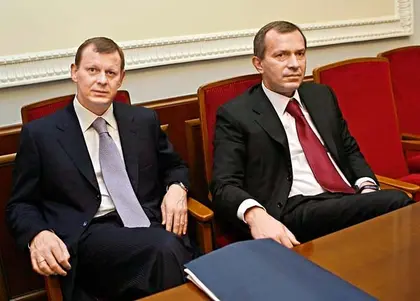Other preferences include duty-free imports and exemptions from value-added taxes.
Yet despite laws giving financial breaks, analysts say mostly well-connected companies are getting the best deals.
JOIN US ON TELEGRAM
Follow our coverage of the war on the @Kyivpost_official.
One such example is Activ Solar, an Austrian company with links to First Deputy Prime Minister Andriy Klyuyev.
This company is among the few to supply environmental-friendly electricity at preferential prices. Klyuyev could not be reached for comment.
- Look at the most up-to-date Ukraine news that came out today.
- Check out the freshest Ukraine news items as of today.
Five solar energy companies linked to Klyuyev recently secured an agreement last year to sell electricity to the state for a premium price, one of the highest in Europe.
The government hopes that, by paying more for environmentally friendly producers of energy, it will encourage production.
The companies involved also got the right to import solar panels duty free and got permission not to pay VAT.
Analysts praise the government for encouraging alternative energy sources to make the country less reliant on traditional energy, such as natural gas, oil and nuclear energy. But they say the process needs to be transparent and competitive in order to attract serious investment.

“It’s good that the government started developing renewable energy sources, including solar energy. But if preferences to develop these energy sources are given only to companies that are close to government officials, this will not improve the investment climate as it limits competition, making it impossible for other companies with better conditions and more affordable tariffs to come to this market in Ukraine,” said Volodymyr Omelchenko, an energy analyst at the Kyiv-based Razumkov Center.
As of May, 45 companies in Ukraine were awarded green-tariff preferences.
Activ Solar’s general director Mykhailo Cherevko told CleanTech magazine in March that it had followed the relevant legal procedures. “I does not matter whether you have a lobby, there is still a certain procedure stipulated by law,” he said.
Following procedures implemented in the EU, the green tariff law in Ukraine was adopted in 2009.
According to the law, the government agrees to a long-term, above-market price purchase agreement of electricity from power plants that use renewable energy sources — such as wind, water and solar power to buy their electricity.
All of the five solar power plants linked to Klyuyev are located in Rodnykove, a village outside of Simferopol, and are subsidiaries of Austrian solar energy developer and manufacturer Activ Solar GmbH, which in turn is part of the Activ Solar Holding GmbH.
Activ Solar Holding GmbH is a subsidiary of SLAV Beteiligung GmbH, which is part of Slav AG, a holding belonging to Andriy Klyuyev and his brother Serhiy, a lawmaker in the Party of Regions faction.
SLAV Beteiligung GmbH is also connected to Slav AG and a number of other of the Klyuyev brothers’ assets through the same address of their official registration in Vienna on Wipplingerstrasse 35.
Activ Solar’s representative office in Ukraine is located in the same building where “Ukrpodshipnik” and other Klyuyev companies are registered.
The chief executive officer of Activ Solar is Kaveh Ertefai, Serhiy Klyuyev’s son-in-law.
Neither Andriy Klyuyev nor Serhiy Klyuyev responded to Kyiv Post’s telephone calls or emails requesting comment for this article.
In September 2010, National Electricity Regulatory Commission of Ukraine granted two of the companies – Crimea Solar 1 and Crimea Solar 2 – so-called green tariffs, a long-term purchase agreement until 2030 under the Ukrainian green tariff law.
Last February, another three such companies – Crimea Solar 3, Crimea Solar 4 and Crimea Solar 5 – were also given green tariffs. All are subsidiaries of Activ Solar.
In July 2010, Crimea Solar 1-2 were given preferences by the government for a duty-free import of solar panels worth 700 million euros and allowed them not to pay VAT.
The National Electricity Regulatory Commission (NERC) is responsible for setting the green tariff price and deciding which companies receive it.
It set the price that the state will purchase electricity from Crimea Solar 1-5 at the highest rate – Hr 5.4 (0.47 euros) for a kWh, while the declared cost price of their electricity is Hr 2.56 (0.23 euros) for a kWh.
The current head of the commission, Serhiy Titenko, is seen as close to the Klyuyevs. Titenko used to work as one of the top managers for the Klyuyev brothers’ holding Ukrpodshipnik and was a Regions Party deputy.
Bohdan Sokolovsky, a former presidential adviser on energy security, said green tariffs are defined for power plants non-transparently. “It seems like there might be conflict of interest involved,” said Sokolovsky, speaking about the connection of Klyuyev brothers to Crimea Solar power plants.
The European Business Association, a lobby of European businesses in Ukraine, also considers Ukrainian renewable energy market to be not particularly transparent.
“On the surface everything looks perfect. There is a law which any investor can take advantage of.
But as of now some EBA members are saying that they are not able to take advantage of the great conditions that exist,” said Anna Derevyanko, executive director of the EBA.
“Foreign companies that enter Ukraine’s renewable energy market are treated differently,” said Borovyk. “It is no good for the investment climate if only companies connected to government officials are getting green tariffs and other preferences. In such a way market mechanisms are distorted and competitiveness ceases to exist and it becomes clear to everyone that if you are not close to the government, then you will not be able to develop these types of energy.”
In a response to the Kyiv Post inquiry, the National Electricity Regulatory Commission directed inquiries to the resolution on which its decisions on green tariffs are based.
Kyiv Post staff writer Yuriy Onyshkiv can be reached at onyshkiv@kyivpost.com.
You can also highlight the text and press Ctrl + Enter




